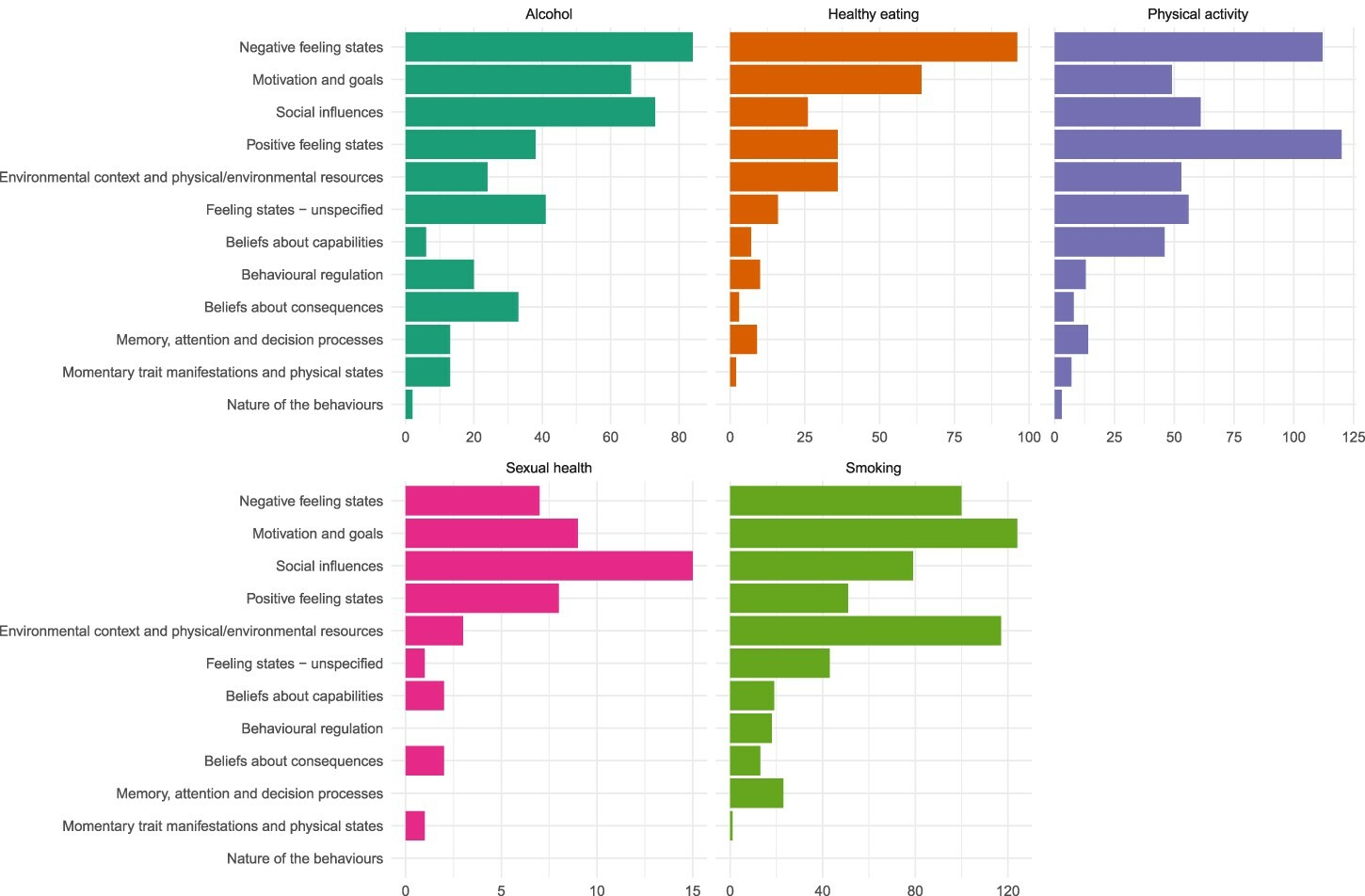Systematic review of Ecological Momentary Assessment (EMA) studies of five public health-related behaviours
Ecological Momentary Assessment (EMA) involves repeated, real-time sampling of health behaviours in context. In collaboration with an international team of researchers (Dr. Dominika Kwasnicka, Dr. Jan Keller, Dr. Dimitra Kale, Bernard Yeboah-Asiamah Asare, Verena Schneider, Daniel Powell, Felix Naughton, Gill ten Hoor, Peter Verboon), I co-led a large systematic review of EMA studies of five public health-related behaviours, including tobacco smoking, alcohol consumption, physical activity, dietary behaviour and sexual health behaviour. The study protocol was pre-registered and the data and R code are openly available via GitHub.
We included 633 studies. The median study duration was 14 days. The most frequently assessed predictors were ‘negative feeling states’ (21%) and ‘motivation and goals’ (16.5%). The pooled percentage of EMA adherence was high at 81.4% (95% CI = 80.0%, 82.8%, k = 348) and did not differ by target behaviour but was somewhat higher in student (vs. general population) samples, when EMAs were delivered via mobile phones/smartphones (vs. handheld devices), and when event contingent (vs. fixed) sampling was used. This review showcases how the EMA method has been applied to improve understanding and prediction of health behaviours in context.

In addition to this large, overarching review, a series of behaviour-specific sub-reviews have also been planned/completed. I led the sub-review focused on tobacco smoking. More specifically, we examined within-person associations between psychological and contextual factors and lapse incidence in smokers attempting to stop. We included 56 studies, with 18 studies contributing 1+ effect sizes to the meta-analyses. In smokers attempting to stop, environmental and social cues and cravings appear to be key within-person antecedents of smoking lapse incidence.